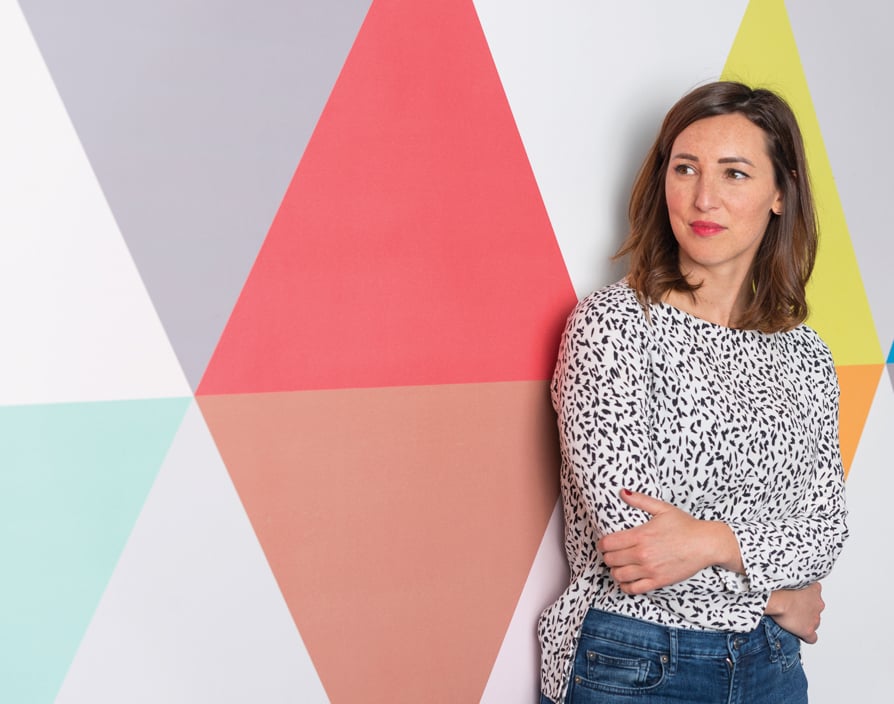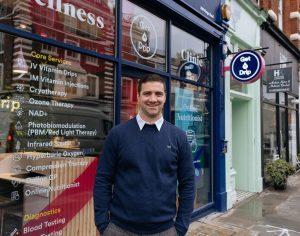These days, you don’t have to look far to see how broken the UK property market is. Not only has the average age of first-time buyers soared significantly since the 1960s but the lucky few who can afford to get on the property ladder are in for an overwhelming amount of time-consuming, costly and mind-numbingly boring bureaucracy. From banks and mortgage lenders to solicitors and estate agents, finding a home means dealing with a surplus of providers angling for a slice of your savings. “So what you’ve got is eight traditional stakeholders in this process and not a great experience for consumers,” says Gemma Young, co-founder and CEO of Settled, the online property platform. This is also exactly what her startup aims to solve by slashing away the middlemen and provide homebuyers and sellers with a one-stop solution to make the ordeal painless and even enjoyable. “That means building a platform allowing people to just sit on their sofa, know what’s happening and to either accept offers on a house or to compete for one when they’re on holiday,” she says.
Nevertheless, revolutionising an entire sector isn’t for the faint of heart. Fortunately, this former Google-employee has an advantage: passion. “You’ve got to have that if you want to do this,” she says. “It has to get you out of the bed every day and through the hard times.” And Young is making no secret of where her passion for Settled’s mission comes from. “My father was actually involved in the property sector,” Young says. “So I’d heard from a being a young girl about the problems, the difficulties and the time it took. It’s as stressful as getting a divorce.”
However, she doesn’t just have her dad’s experience to draw from. Having earned a degree in sociology and criminology from Buckinghamshire New University in 2003, her first step into the labour market was working 11 months for Connells, the estate agency. “I was really intrigued to understand how it all worked,” she says. Working at the coalface made her see just how awful the process was, which made her understand why only 25% of people in Blighty trust estate agents, according to a survey from Ipsos MORI. “But interestingly, people still used them,” Young says. “They’re seen as a necessary evil.”
While these insights would certainly prove pivotal in laying the foundations for her proptech startup, having spent almost a decade working with Google certainly played a huge role too. “Being inside Google taught me that digital technology can transform people’s lives,” she says. Nowhere was this as evident as when she went to Silicon Valley and experienced its startup culture. For instance, she had a chance to meet several entrepreneurs, including partying with the ragtag team of developers behind a little firm called Airbnb. “You couldn’t go into a coffee shop without somebody being on their laptop talking about a startup,” she says.
But while she noticed how startups were changing everything from advertisement and travelling to e-commerce and fitness, the property market kept dodging being swept away by the technological tide. “I saw all these changes happening in every other industry and I was waiting at Google for many years for someone to really leverage digital technologies to change the sector,” she says. It wasn’t until one of her friends turned up to her house in tears, saying that the deal for her dream house had fallen through after five excruciating months that Young realised that this someone was herself. “That was the light-bulb moment,” she says.
Having decided to disrupt the market, Young quit her job in 2013 and used about £50,000 of her savings to find a fix for the broken sector. “It was quite overwhelming,” she says. Still, she hunkered down for days by her dining table, drew up how the process could look and began to talk with consumers to find out what kind of service they wanted. Only a short time into this process she enlisted the help of her brother Paul. Given he’d previously provided financial-services for the property sector and was one of the co-founders behind The Vape Store, he offered invaluable insights to get Settled off the launchpad. “Having his perspective was really wonderful,” she says.

The sister and brother team Paul and Gemma Young are revolutionising the property market.
The two co-founders’ first priority was to overcome teething problems like outsourcing the creation of the first iteration of the platform to an agency and finding a name for the startup. The last bit actually proved surprisingly tricky. “One of my friends from Google came up with the idea of calling the company Settle, without the D,” Young says. Unfortunately, she soon discovered that the small Yorkshire town with the same name had already bought the URL and had no plans to forsake it to the benefit of a London-based startup. “Eventually another friend of mine asked, “why don’t you go with Settled?'” Young recalls. “You want the D because you want people to feel that they are settled and not that they are settling.”
But if a great name was enough to spearhead the proptech revolution, we’d already have been able to swipe right on property deals with the same ease as you can find a Friday night date on Tinder. No, to scale you need cash, which was something the Youngs were quickly running out of. Luckily, the government’s Seed Enterprise Investment Scheme provided a solution. “Schemes like that really makes the difference,” she says. Indeed, by leveraging the tax cuts investors could make from the scheme, the siblings convinced friends and people who would normally not be angel investors to raise a total of £150,000 at the tail-end of 2013. “It was a big help,” she says.
Backed by this influx of capital, roughly a year after they’d set out to shake up the industry the siblings confidently took their minimum viable product out for a spin and tried to attract their first customers. “I wanted to check that the idea was right and that it was something that people would be interested in,” she says. To get customers to sign they initially didn’t charge. And it’s safe to say this inaugural experience proved a great success. One early client in particular has stuck in her memory: a 60-something-year-old professor from Sussex. “We had a very close relationship with him when he tested the system and he called us within a week and said, ‘I’m on my sofa toasting with champagne with the person who’s buying my house,” Young says. “After we hung up, Paul and I just jumped around shouting ‘it works!’ That was a very special moment for us.”
Off the back of their success Settled was able to raise a second seed round in 2014, this time led by 500 Startups, the VC firm. While the extra £1m certainly came in handy, it wasn’t the biggest benefit from the deal. “Not only did we get investment from them, they also ran an incubator programme with other startups,” she says. By being close to other entrepreneurs like the ones behind the launch of Airsorted, the Airbnb-service-management company, Young and her brother had a chance to build their network and to learn from the people whoíd faced similar challenges as them. “We spent a month with the other founders going over the best ways to scale a business, which was great timing for us,” she says. “We were already scaling and this allowed us to maximise the scaling potential of Settled.”
This round was then followed by a third one led by the VC firms Piton Capital and Connect Ventures, both of which have great reputations of helping startups grow. “We are very lucky to find that the people we wanted to work with also wanted to back us,” she says. Backed by this additional influx of £1.2m as well as the guidance from these experienced teams, Settled was able to level up their game even further. “It allowed us to continue to scale and to hire people,” Young says. “Importantly, it enabled us to invest time into our product, into our software, which is absolutely at the core of what we’re doing.”
Speaking of the team, while other tech firms have struggled to bridge the STEM talent gap, Settled has had no problem expanding its workforce. “We’ve got some amazing people working here,”Young says. “They feel like family.” Drawing inspiration from her time at Google, Young is conscious about the importance of not only hiring the best people with the sharpest skills but also how vital it is that these people fit into the culture. To ensure this, the founders determine candidates believe in the company’s mission to fix the broken property market and boost their retention and motivation by offering candidates equity in Settled. “That really gives us an edge in finding the best talent,” she says.
And it certainly feels as if this advantage has provided them with something to build on. To date, Settled has more than 20 employees, helped sell over £300m worth of homes and slashed over 9,000 days off the time clients have to wait for completion. But Young isn’t stopping any time soon. “We’re focused on how this journey can be completely perfect,” she says. To do that, she’s putting all her efforts into evolving and spreading the word about Settled. While this will require a lot of hard work, we’re sure she’s got the passion to see this through. ![]()
Share via:


















































